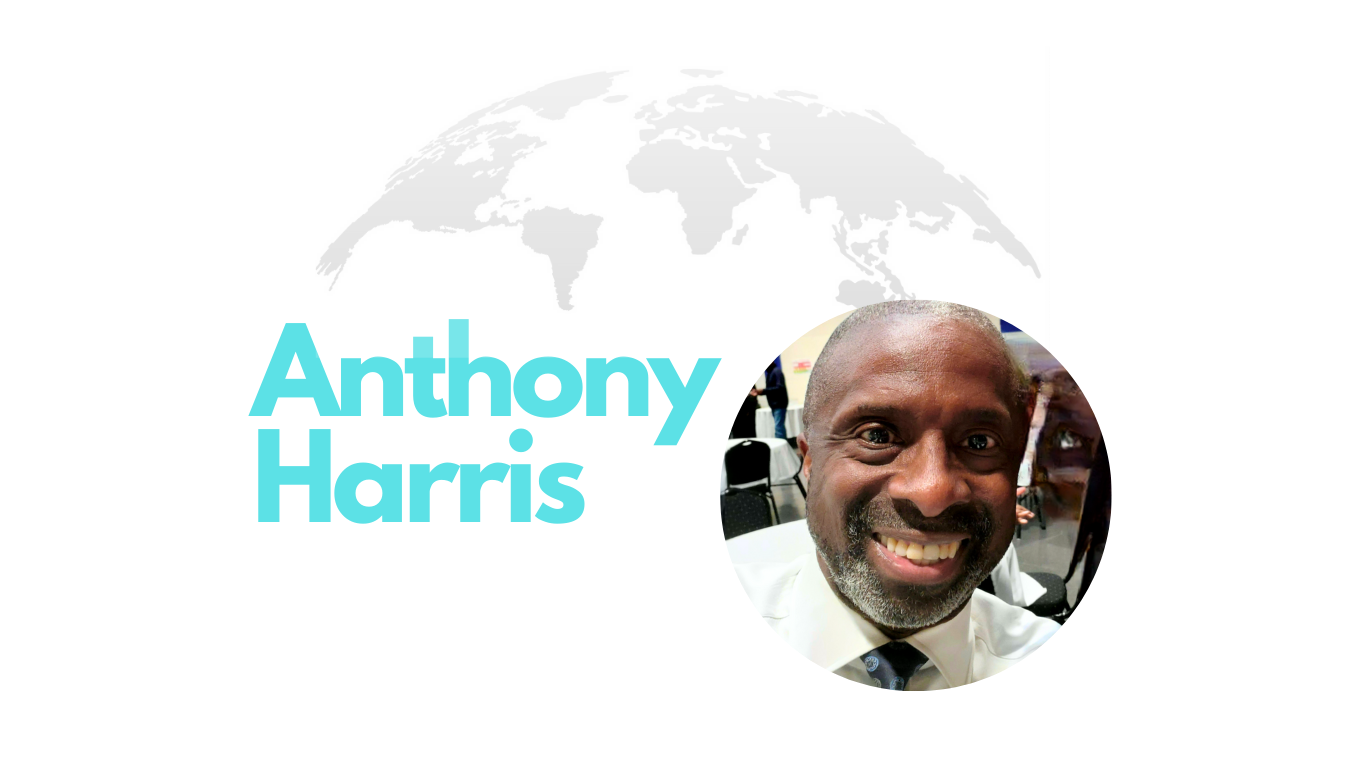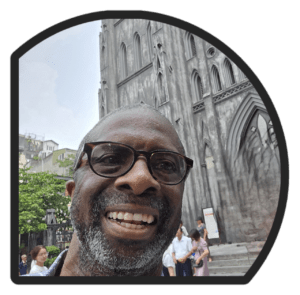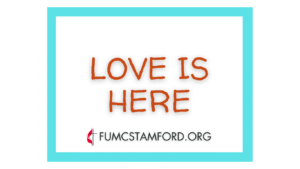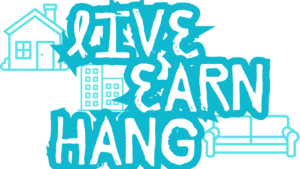Take Time for Anthony Harris
I had two different grandparents on mom’s side. When I was young, we travelled to Chicago and to Mississippi to see my mom’s family. This is because as a child my mother was sent to live with her uncle in Chicago because of the racism in Mississippi. It was safer as a black family to live in Chicago at that time and Grandmother did not want my mother to be raised in Mississippi.
Other families felt the same way so there was this great migration from the South to NJ, NY, and Chicago. Mom moved to CA after college in 1951.
My father grew up in Texas and then moved to CA in his twenties. Like Mississippi the people in Texas were still overtly racist at that time. My parents met in CA through my father’s brother.
As a kid, I sang in the children’s choir and participated in a lot of church plays. We learned how to speak publicly through church plays. We also attended Sunday school as mom was a Sunday school teacher. After Junior High School we moved from LA to a town 30 miles east called Pomona because where we lived was changing due to gangs.
I recall the impact the gangs had on my parents. As a kid I had a smart mouth and one day I was riding home from school on the bus. This kid gets on the bus and says, “I like that jacket.” In gang-speak this meant he wanted my jacket. He said if you don’t give me that jacket, I will see you tomorrow with some other people.
When I told my mom what happened, she said, “You are not riding that bus tomorrow.” Three weeks later, we were moving from South Central, LA to Pomona CA.
After high school I completed my first year of college at Claremont Colleges. Then I moved on to San Francisco State and I loved it.
I remember how much the weather can vary based on where you are in the San Francisco area. We were half a mile from the Pacific Ocean in the fog belt. During Sophomore year I lived in Oakland with a cousin. I would leave early in the morning, take rapid transit, go across the bay, and get on a trolly car. While travelling the temperature drops, and you hit massive fog and 50-degree temperatures. When the fog clears by 130 pm – 2pm the weather is mild and warm.
I graduated from college with an accounting degree and was hired by a big 8 public accounting firm, KPMG. After I earned my CPA license, I transitioned to work with Atari owned by Warner Communications at the time.
There were serious issues at Atari with a popular console game. The company stock dropped because the game did not work properly so Warner decided to sell Atari. Three weeks later I was transferred to the New York office.
I met my wife Debbie through a personal ad and moved to NJ. We bought a house there in 1990. Later I was transferred to Philip Morris in Chicago where we had our first child Lauren who is now 28 years old. After we transferred to Stamford, we had our second daughter Nicole who is now 26 years old.
When we first arrived in Stamford we went to different churches. I recall that Susan Johnson had a conversation with Debra and Mentioned FUMC. We attended a service and felt FUMC was a welcoming church with a vibrant children’s ministry and a large Sunday school. My kids liked Sunday School so that was part of the reason we stayed.
If I look back, it was one of the best life journeys in terms of my formation. The Baptist Church has a very formal way of interacting with God. In the black church the expectation is we show up in the right dress, a suit and tie if you’re a man, a hat if you’re a woman, but there are other perspectives on how to experience church.
When I look at the church now my perspective has changed. I think about the people and the different walks of life that exist here. You can’t find that anywhere else.
I also think about how my views have changed. How many people want or can afford the best attire? Your standard for the best outfit might be a clean casual shirt and a pair of jeans. Should how you dress determine if you are fully accepted or should we accept the idea that it doesn’t matter how you come. We are here to worship. I constantly ask myself how do we make people feel welcome?
As a church, we were much more involved with the community back then. We wanted to do more than attend church on Sunday, so we started a tutoring program with the Haitian community center. Unfortunately, that center doesn’t exist anymore. We also hosted the annual aids service.
Heavy involvement in the community is a large part of expressing my faith. I felt invigorated by doing good works. My spirt is uplifted by doing work for God. The most important duty as a Christian is to give service to others. We have more than enough work to do.
Through prayer and one on one discussions with other folks like Anthony Parenti. I also participate in Men’s Bible Study.
I grow through conversations with others, recognizing that we are all on a different path and journey, understanding that if you are having a challenge, you gain perspective when you hear another person’s challenge that could be so much bigger than yours. God is saying that it’s okay, recognize there are other much larger burdens. It is like if you are in the hospital or if you want to be someone else at times, and then you hear that next person’s story, and they will be in the hospital much longer than you. It shifts your perspective. I always say if you keep your ears and eye open, God will show you. He calms you.
I pray a lot. Now we are going through a pastoral transition. Any transition is challenging, and we have hit some bumps.
My Leadership style is to ask a lot of questions: What do we need to do next with the new pastor and our members? How do we get to the thoughts and concerns of members?
I try to be a listener and speak to those who may not be as vocal, reaching out to folks I do not see often. I aim to understand where people are and what is important to them. I also step back when I need to.
At FUMC, I have noticed that once kids grow up you don’t see their families anymore. Do we think enough about retaining those people before they leave? The question we should ask more is, “Even though you came here for your kids, how do we tap into your spiritual growth?” This is where the check-in factor comes into play.
We can’t do everything all at once. Leaders must set priorities and focus and engage as many people as possible. Another question I ask is, “What do we need to work on and how do we make sure as many people are involved?” These types of questions are not unique to our church.
Other churches are growing. They are investing a ton of money to draw in families. What can we learn from them? They are building residential apartments on Long Ridge Rd. How will we attract those residents to FUMC? We are doing quite well compared to others at the conference, but we still have a lot of opportunities to grow.
I replace the word conflict with differences. When you understand there are always differences in people and ideas, there are more options to manage difficult situations. Quite frankly, we have not had much consensus in the council. My role is to lead the conversations, and we try to make decisions after everyone’s voice is head. We know how to explore different ideas well.
Everyone has a perspective based on their experiences. For example, Liz Outlaw has been at the church for decades, so she offers the historical perspective. She provides context so we can assess where we are today versus the past in terms of the goals we are trying to reach. There is always that one voice that sheds new light on the situation and as a group leader, I am also thinking about things from a different perspective than everyone else.
Consensus building requires making sure what is being said is being heard. It might require reframing what others say to check for understanding.
I follow the direction of the group once all voices are heard. My role is more of a facilitator versus final decisionmaker, that is my style. I get buy-in and make sure we are moving in a positive direction.
I am very big not so much on ideas but who is going to be accountable to execute them. Who is going to do it? Is anyone raising their hand? Can I name someone, or do I know anyone that suits the job? I want to get the young people involved and the new people coming to church more opportunities. Christians should be a people of action. It is not enough to say you are spiritual. How are we demonstrating that? There are things we should all want to do in terms of spiritual growth. I focus on the accountability piece.
Setting goals for the church is a priority. Our biggest challenge right now is leadership, specifically bringing in new leadership. We have seen 22-40 yr old visitors coming to the church, but can they be leaders? We need to find ways to figure that out.
Another priority I think we should have is to expand the demographics of the church beyond Gen X & Baby Boomers (50-year-olds and above). I would like to see more generations represented.
We need leadership to create traction. Who will take responsibility for an idea and run with the idea? Who is going to take on a new responsibility and recruit others?
We don’t really have formal church goals established right now. We need to set 1-3 priorities and make sure everyone in the church knows what they are and how they can help.
We could be a place where people could come to gather and reach out to other communities. We need more people involved. A tutoring program can attract people from the community. We could market that program and see who in the community is interested but first we must commit to these types of programs and create an environment for new leadership.
I am a huge fan of the podcast Daily by NYT, and Code Switch. It deals with race and culture. I also like the Ezra Klein podcast, The Message, the newest blog by Ta-Nehisi Coates, and The Coming Wave, which deals with AI.
My dad. He is gone. I say that he is my hero because he raised my brother, my sister and myself to be good people and love people for who they are.
He raised us to care about family and do the right thing. My dad and I did a lot of things together like fishing. He called himself a country boy from Texas and he really loved fishing. If we were at a restaurant and there was an aquarium we would joke and ask them to cover it up because my dad would be tempted to catch the goldfish.


 I was baptized around 11 yrs old. I loved the Lord. Some people have a type of awakening or awareness as they get older, and I was one of them. After college there was that period when you become a little more critical of God and religion in general.
I was baptized around 11 yrs old. I loved the Lord. Some people have a type of awakening or awareness as they get older, and I was one of them. After college there was that period when you become a little more critical of God and religion in general.

